This is a featured post from our partners and friends from the GIZ Blockchain Lab, the blockchain entity of the German development agency. Read the original article on Medium.
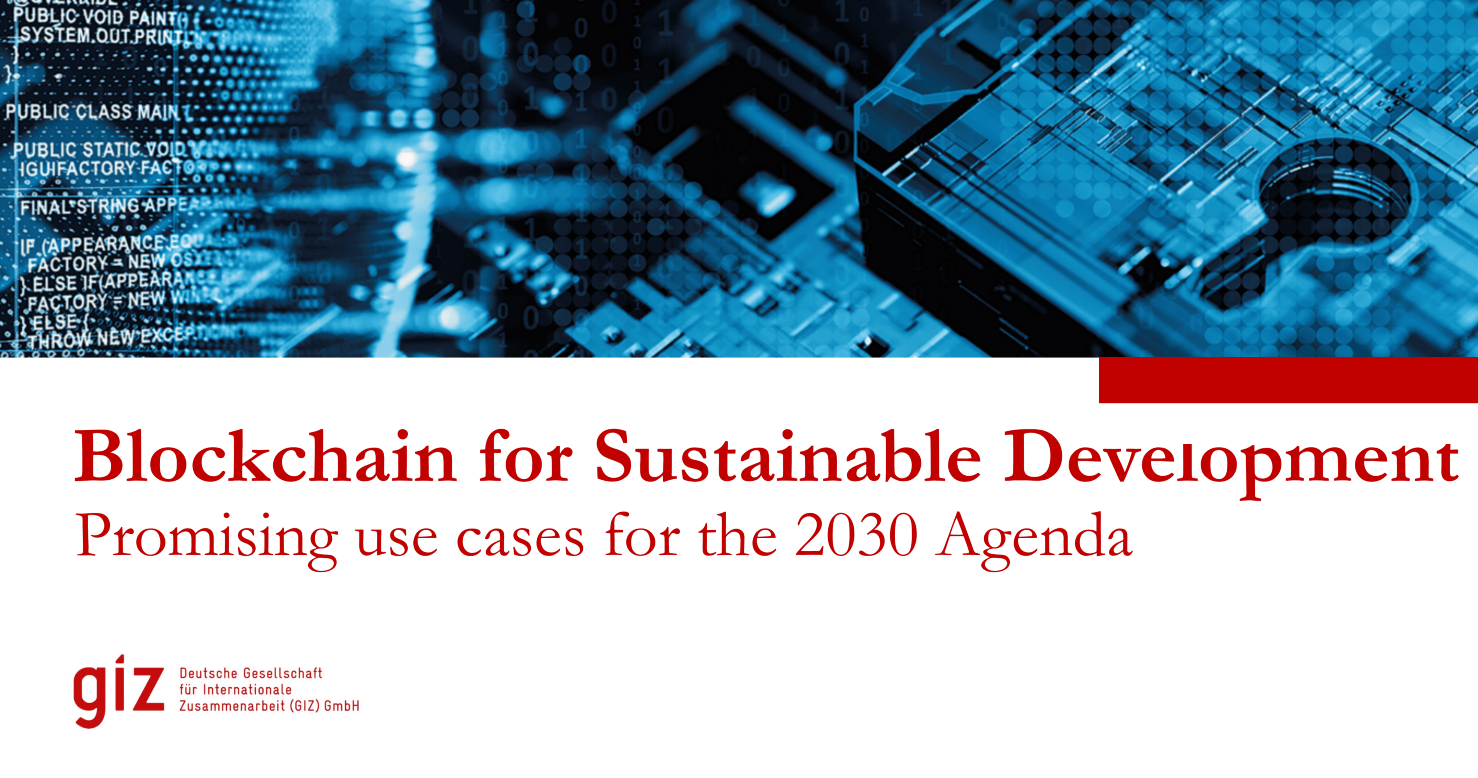
It’s September 2015. Representatives from all member states of the United Nations gather in the general assembly and sign possibly the most ambitious UN resolution the world has seen: Transforming our world: the 2030 Agenda for Sustainable Development. It has an objective no smaller than its title would indicate. In 17 goals and a whopping 169 targets, the UN intricately defines what we still need to undertake in order for everyone to live a dignified, equal, prosperous and peaceful life by 2030.
From the onset, the UN has embraced the role of digital innovation as one means to achieve the sustainable development goals. Newer, faster and — simply put — better solutions are needed to make progress in time. António Guterres, Secretary-General of the UN, even declares:
“Without innovation, there is no way we can overcome the challenges of our time”
Clearly, digitally networked technologies are seen as the game-changer that can do no less than save our planet and its people. But how does this look in reality? What exactly can and will technology allow us to achieve?
One of the digital technologies that social innovators are putting their hope in are distributed ledger technologies, most prominently Blockchain. Already in 2009, when the cryptocurrency Bitcoin was released on the first Blockchain protocol, enthusiasts understood it as the end of the financial sector as we knew it. An earthquake of zeros and ones to rid us of the centralised banking system. This assumed power and the hope in Bitcoin’s underlying technology is what practitioners in sustainable development now want to apply to the 2030 Agenda.
Blockchain is, simply put, a database technology. Contrary to traditional databases, however, it registers transactions and stores them across a network of computers. Instead of a single original record, each computer holds an identical copy of all transactions on the Blockchain. As such, the data is distributed and decentralised. Additionally, this network can only append further transactions agglomerated into blocks of data when all computers reach consensus on the validity of each and every transaction in the block. By irrevocably linking and timestamping the blocks, the data becomes immutable and trackable.
Thanks to its decentralization, immutability and traceability, Blockchain has, especially in 2018, experienced widespread popularity. New project ideas — of which many are indexed in the PositiveBlockchain.io database — sprung up as if a long winter was over. No wonder. Many past hopes for the internet which didn’t materialise over the past three decades got bundled into this new technology. The dream of a new and equal world has been reborn in the tech world and easily combines with the sustainable development goals’ promises of a better future.
Unfortunately, too many Blockchain-based ideas still never make it past a proof-of-concept or ideation stage. Often, their setup, focus or objective are neither aligned to the real-world problems we face nor feasible in technical scope. For project planners, influenced by ideologies and hopes in a promising technology, it is just too easy to lose the grip on reality. For exactly this reason, we took some time at our Lab to dissect what’s feasible and relevant in the scope of sustainable development and Blockchain technology. For over a hundred potential use cases, we asked ourselves:
- What added value can the Blockchain technology offer?
- How is this relevant to the sustainable development goals?
- Is this use case feasible from a technological, economic and legal perspective?
- What challenges can hinder a potential implementation of Blockchain technology in this case?
- Is there sufficient possibility for backing or sponsoring of the use case within the development sector?
As a result of scrutinizing each case with these five questions, we are now able to validate the 15 most promising Blockchain use cases for sustainable development. These 15 cases are Supply Chains, Financial Services, Energy Markets, Trade Facilitation, Taxation, Social Impact Bonds, Digital Identity, Education Credentials, Data Market Places, Journalism, Land Registry, Public Procurement, Parametric Insurance, Climate Accountability and Water Management. (Our poster provides a handy summary of the assessment.)
An example: In trade facilitation, Blockchain can be used to improve the integrity of information and reduce the common asynchronicity of trading documentation and goods. Ultimately, this can decrease the time and cost for clearing goods at customs, accelerating international trading overall. According to the Addis Ababa Action Agenda, international trade is understood as a key facilitator for inclusive economic growth. Hence, this use case offers relevant benefits under sustainable development goal 1: to reduce poverty.
So what now? Across the spectrum of economic, social and environmental issues, each illustrated use case could benefit from the application of Blockchain technology. As such, we wanted to open up the below overview to the broader world of tech enthusiasts, developers, entrepreneurs and development practitioners. We believe that this overview, be it as guidance or inspiration, can help all of us in ensuring that the ideas we pursue are grounded in an informed and realistic approach.
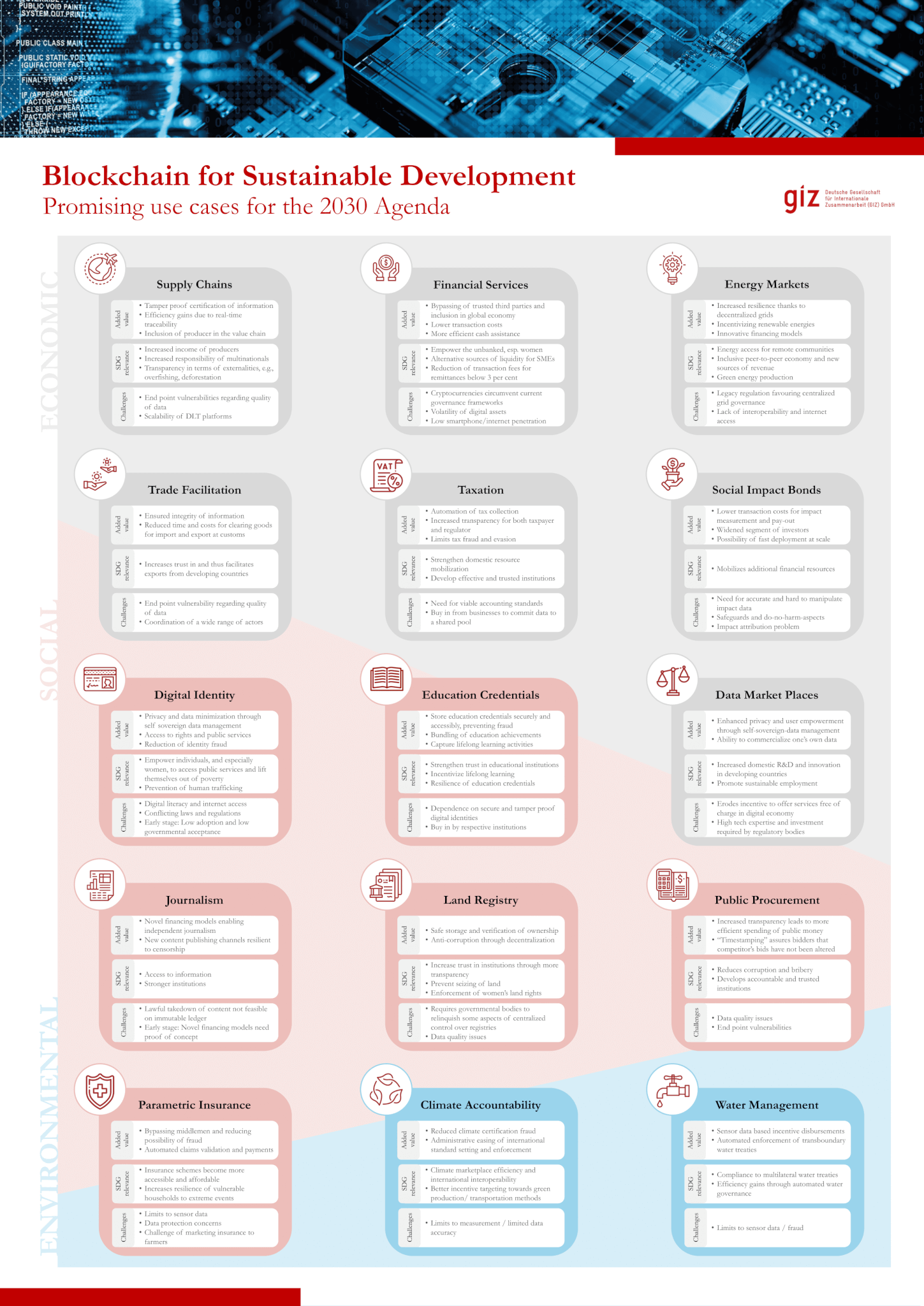
About GIZ Blockchain Lab
As a federally owned enterprise, GIZ supports the German Government in achieving its objectives in the field of international cooperation for sustainable development. The Lab serves as GIZ’s honest broker, assessing the feasibility and impact of Blockchain and other innovative solutions applied to accelerate the 2030 Agenda and the sustainable development goals. Via our new series on Medium we will share our ideas, perspectives and initial results from Blockchain-based and other innovative projects.
]]>
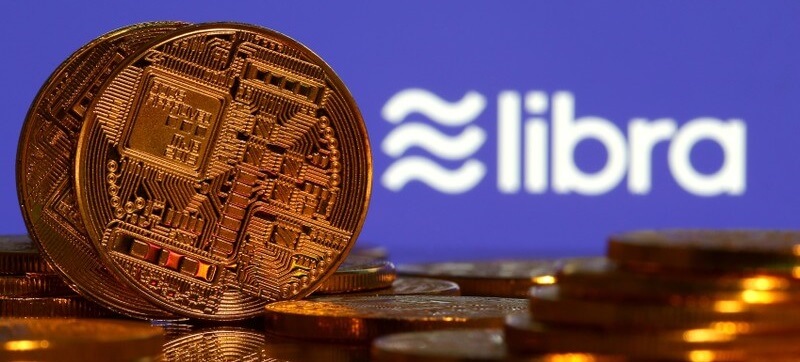
This is a featured post from our friends and partners from the Frankfurt School Blockchain Center. Read the original piece here.
On June 18, 2019, the white paper of Facebook’s crypto currency project “Libra/Calibra” has been released. First information with respect to the vision, the goal and the implementation of the project have been published.
Key insights
- The goal is to provide a stable token backed by real assets as bank deposits and government bonds (see specific details below).
- Libra will therefore not be pegged to the USD or another traditional currency; it will therefore be “money”, but not a “currency”.
- Libra will not target the enterprise payment sector such that Libra would be used as means of payments between companies. For Libra, this would require the status of a currency. Please note that companies are required to do their accounting in EUR, USD etc.; they will not switch their accounting systems to adopt Libra.
- Facebook targets hundreds of millions users in developing/emerging countries.
- The current approx. 30 Libra partners altogether have access to >1 billion users including direct access to the “last mile” which is already installed apps on smartphones.
- Adoption will be achieved very quickly, within months after starting in Q1 2020.
- Libra will therefore revolutionize the remittance market.
- There will be two tokens: one payment token (for payment) and one utility token (for discounts and other benefits to provide incentives).
- Governance of the Libra Association will not be done by Facebook alone but by a group of larger corporations, mostly US-based.
- In the short term, there is hardly any impact visible on competition with European banks and other financial organizations since they mostly do not tackle the remittance market for individuals.
- In the mid term, hundreds of millions of users will hold Libra tokens and potentially can exchange them at crypto exchanges. This could drive adoption of crypto assets such as Bitcoin rather than hamper adoption.
Read the entire article here…
Authors: Philipp Sandner, Jonas Gross, Felix Bekemeier.
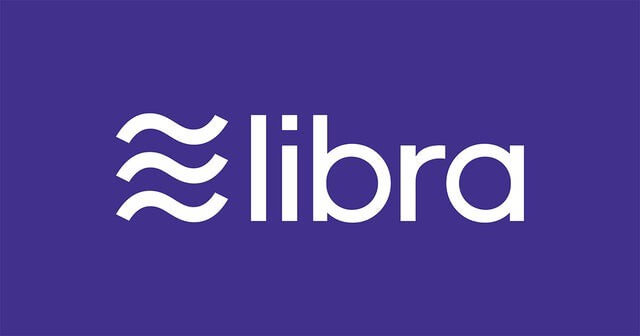
Mainz, 12–14.04.19
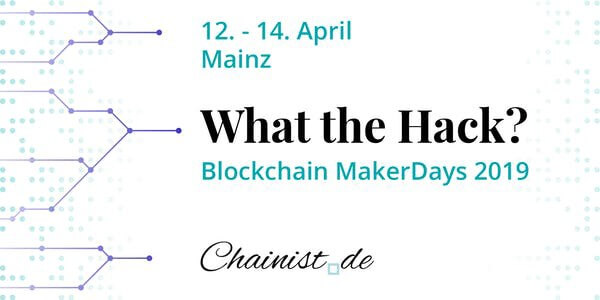
PositiveBlockchain recently communicated about the UNECE initiative on Public-Private-Partnership for Sustainable Health and its working groups on digital technologies (i.a. blockchain) for the future of healthcare.
In few weeks, the initiative will be present at the MakerDays in Mainz to foster blockchain for healthcare creation. It is the opportunity for you — participant, partner — to engage!
About the 2019 Blockchain MakerDays
The MakerDays are similar in concept to a “Hackathon”, but the organizers made a conscious decision to use a more open definition in the title so as to address a wider group of people. The two MakerDays will provide a creative space for people from different disciplines. Instead of simply bringing together “hackers” (in the sense of “techies“), people working in design and business will join interdisciplinary teams in order to develop collective blockchain solutions.
The Teams
80 participants who will tackle Challenges in teams of five to seven members. Several teams may work on the same Challenge. Ideally, two thirds of each team will be developers and one third will be participants from the fields of design and business.
The Challenges
A number of challenges will be proposed to participants, focusing on business applications in the fields of Mobility, Impact, Media and Health. The themes are widely represented in the industrial and innovation ecosystem in Mainz and the Rheinhessen area in Germany.
Every Challenge presents a task which leaves room for the participants to develop creativity and “out-of-the-box” thinking. The definition of a Challenge should be open enough to allow participants to approach it from various angles. Themes can either be proposed by the respective sponsor / Challenge Owner or developed with our assistance. To ensure quality results, Challenges will be communicated to the participants as early as possible so that they can explore their subject ahead of the event.
Partner: PPP Initiative 4 Healthcare
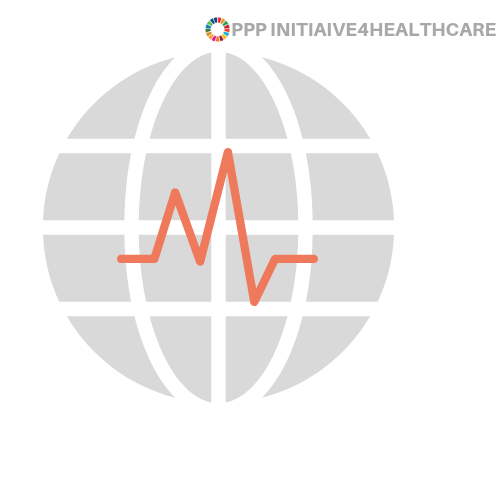
The United Nations’ Agenda 2030 sees an important role in innovative technologies to support sustainable development. Blockchain technologies are an important emerging innovation that can drive the implementation and monitoring of SDG objectives through public-private partnerships in line with SDG.17 and specifically in Health with SDG.3.
Blockchain technologies can offer a strong help to bring all stakeholders together — all those involved in and regulating value chains: producers, intermediaries, end-users and governments. As a partner of the Blockchain MakerDays, we explore together with participants possible solutions for the healthcare sector in the form of a challenge.
Blockchain & Sustainable Healthcare Challenge
- Application of blockchain for e-health governmental systems: create reliable, trustworthy and uncorrupted registries of healthcare Information and identities related to birth certificates, fingerprints or other biometric data
- Simply the healthcare market by connecting players through shared platforms using smart contracts
- Reward healthy patient behaviours using tokens and promote ethical use and monetization of health data (e.g. related to connected devices)
- Improve drug supply chain and traceability to mitigate counterfeiting
- Take advantage of digital currencies and smart contracts to fund and execute healthcare-related projects (e.g. in development finance or public-private-partnerships to increase transparency and reduce risks of corruption)
- Application of blockchain in financing, construction and facility management of healthcare facilities
Join the Sustainable Health Track
Development agencies, public institutions, NGOs, startups, pharmaceuticals and private companies are invited to partner. Contact the event organizer and PB Contributor at [email protected].
Participants can learn more and register here.
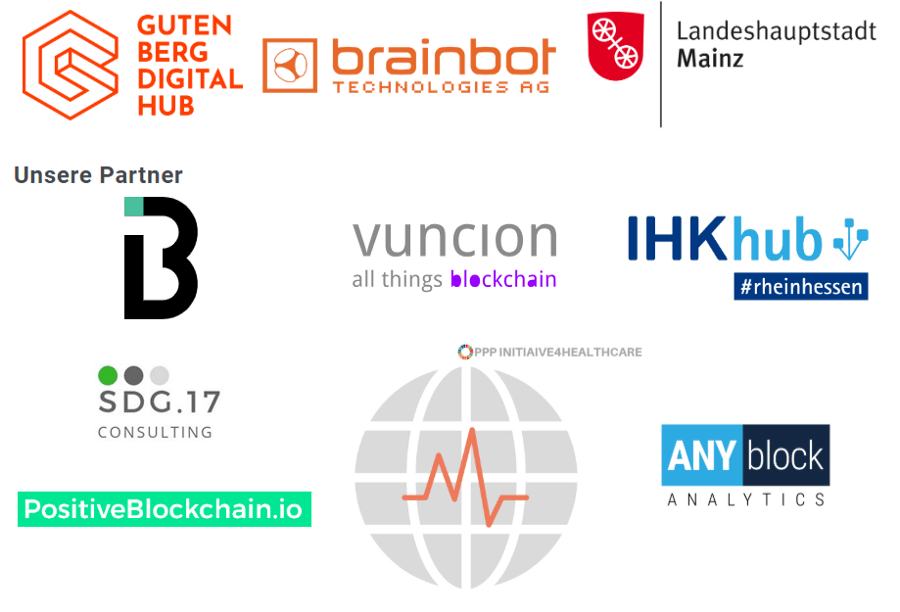
About Chainist.de
We are blockchain enthusiasts, educators and consultants. We are companions for people, organizations and institutions to understand and use Blockchain technology. We are the Blockchain Competence Network. Consisting of chainists. Our customers and previous event partners already include ZDF, IHK Rheinhessen, IHK Hub, Gutenberg Digital Hub and the UNECE PPP 4 Healthcare Initiative.